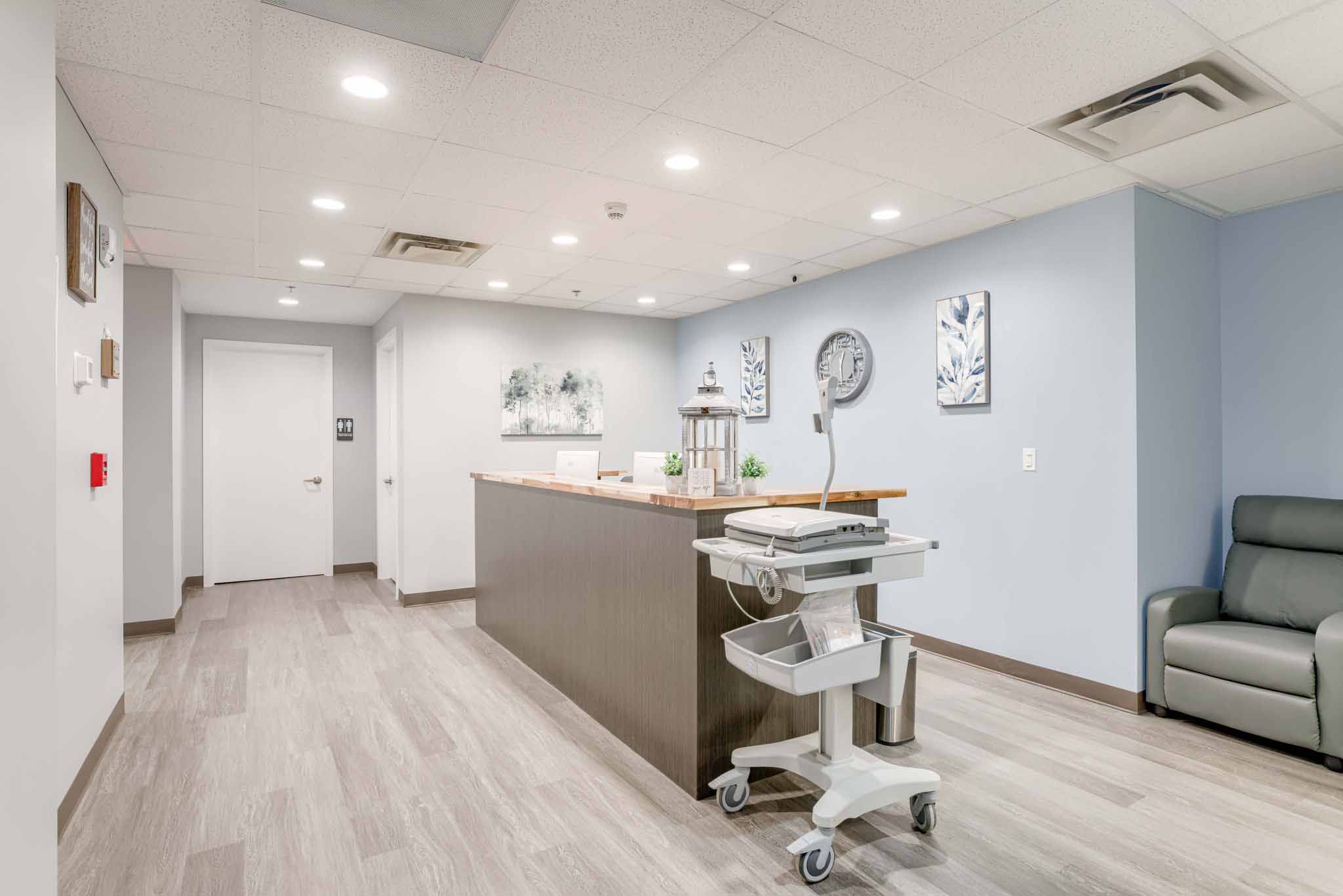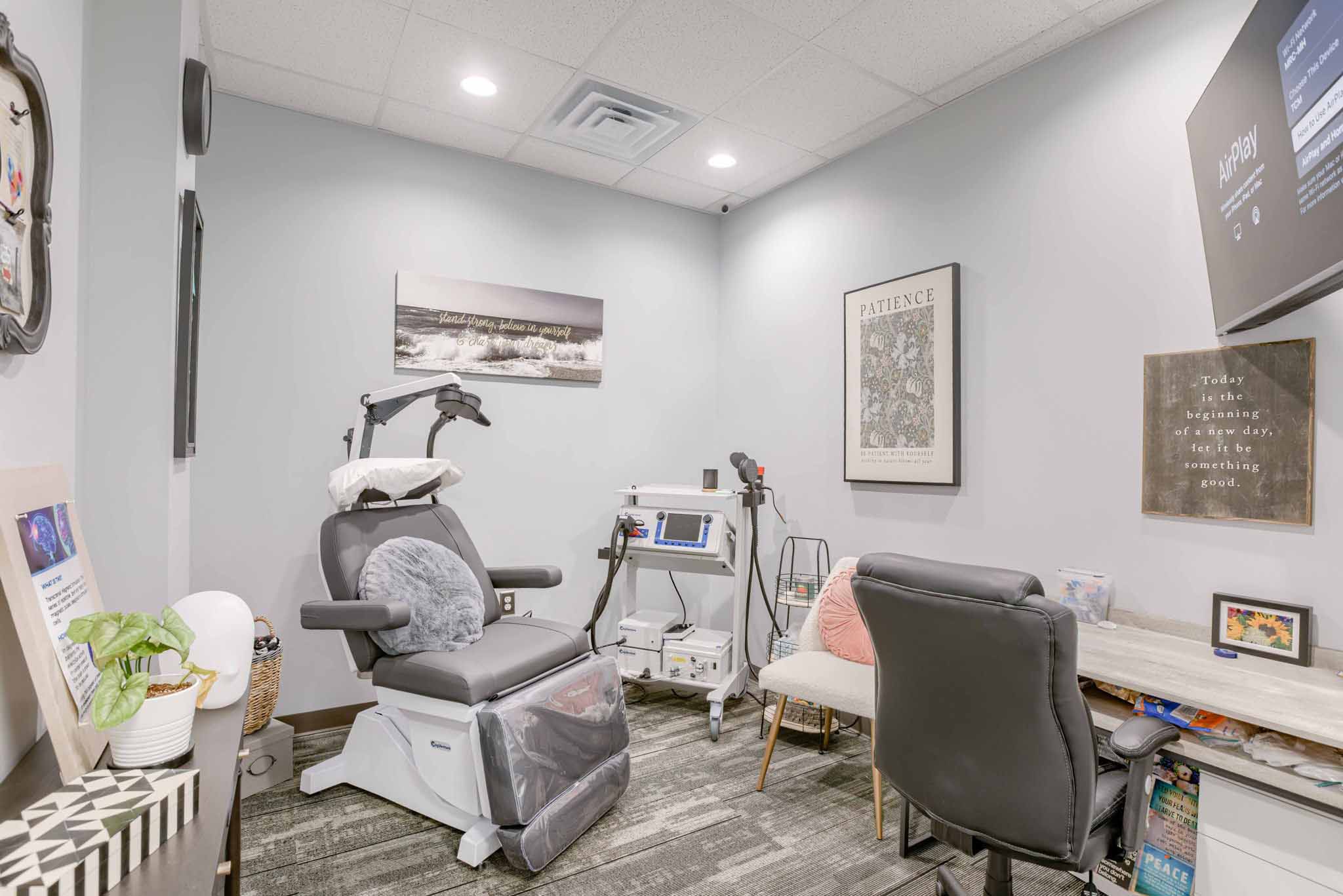Schizophrenia Treatment
Schizophrenia, a severe mental illness, affects a person’s thinking, feeling, and behavior. The disorder can lead someone to appear like they’ve lost touch with reality, creating distress for them and the people around them. Schizophrenia makes it difficult to participate in day-to-day life and activities when it’s untreated, but with treatment, it’s possible to participate in school or work, be independent, and have healthy relationships.
There’s no cure for the disorder, but with treatment, symptoms can be significantly improved, and the risk of a recurrence can be avoided. Our team strives to stay up to speed with current research into the safest and most innovative treatments for this disorder.

Schizophrenia is rare, affecting less than 1% of the population in the U.S.
There are unfortunate misconceptions about schizophrenia—for example, most people aren’t any more violent or dangerous than the general population. It also doesn’t mean someone has a split or multiple personalities. Another misconception is that people with schizophrenia will be homeless or live in a hospital. In reality, most live in their own homes, with their families, or in group homes.
Schizophrenia Signs and Symptoms
It’s usually not until someone is between the ages of 16 and 30 that they’re diagnosed with schizophrenia, and it’s often after the initial episode of psychosis, in which acute psychiatric stabilization is often required. Following up with inpatient treatment as soon as possible after this acute stabilization, is critical for recovery.
Increasingly, research is showing gradual thinking, mood, and social functionality changes may start appearing before the first psychosis episode, but they’re difficult to identify.
Symptoms can vary, but usually, they fall into one of three primary categories.
Positive or Psychotic Symptoms
Positive symptoms affect behavior, thinking, and experiences. Someone with positive symptoms may lose touch with shared reality with others. They may experience the world in a way that’s distorted, and the symptoms may come and go or be stable over time. They’re referred to as positive symptoms because they’re abnormally present.
- Hallucinations are one type of psychotic symptom. Hallucinations mean a person sees, tastes, feels, smells, or hears things not actually there. For example, hearing voices is a common schizophrenia symptom. Voices may be heard for a long time before loved ones notice there’s an issue.
- Delusions are strong, untrue beliefs that appear irrational to others. These are considered positive or psychotic symptoms.
- Thought disorder is characterized by illogical, unusual thinking. Someone with thought disorder may have disorganized thoughts and speech.
- Movement disorder can include the repetition of certain motions or other abnormal movements.
Negative Symptoms
These relate to a loss of motivation, interest, and enjoyment in day-to-day activities and social withdrawal. Negative symptoms can also include problems with showing emotions and functioning normally. They’re called negative symptoms because they’re abnormally absent.
Low energy, avoiding social interactions, and problems with feeling pleasure are all negative symptoms. Negative symptoms can also include limited facial expressions and speaking in a dull voice.
Low levels of energy and spending a lot of time in passive activities are negative symptoms, too. For example, rarely catatonia can occur, meaning someone stops moving or talking for an extended period.
Cognitive Symptoms
Symptoms related to cognition that can occur with schizophrenia relate to concentration, memory, and attention. It can be challenging to remember and learn things or follow conversations. Processing information for decision-making can be challenging, as can focusing and paying attention in general.
Schizophrenia Risk Factors
There is a combination of factors that are often thought to contribute to the risk of developing this psychiatric disorder. For example, genetics can be a risk factor. Schizophrenia can run in families. There’s not a single gene that causes the disorder, but a lot of different genes can raise the risk.
Environment and life experiences can play a role. Living in dangerous or stressful environments can contribute to the risk, for example.
The structure and function of the brain also may play a role.

How Is Schizophrenia Treated?
The currently available treatments for schizophrenia tend to focus on helping with symptom management, improving day-to-day functionality, and the achievement of personal goals, like having a career or fulfilling relationships.
A cornerstone of treatment for many people with schizophrenia is antipsychotic medications. These can reduce both the intensity and frequency of symptoms. The medicines may be taken as a pill or liquid daily or sometimes as injections once or twice monthly.
If someone doesn’t see symptom improvement with typical antipsychotic medications, they might be prescribed clozapine.
Psychosocial treatments help with identifying solutions to challenges in everyday life and symptom management. These are typically paired with antipsychotic medication. Research shows participation in psychosocial treatment reduces symptom recurrence and the need for repeated hospitalization.
Behavioral skills training and psychotherapy, like cognitive behavioral therapy, are examples of psychosocial treatments.
Education and support for loved ones can help the people around a person with schizophrenia, and there’s also something called coordinated specialty care or CSC. These programs are focused on recovery for people at an early stage of schizophrenia. The treatment integrates psychotherapy, medication, employment and education support, case management, and family education and support. A treatment team collaborates to make treatment decisions and involves the family as much as possible.
If someone with schizophrenia has a co-occurring drug or alcohol use disorder, this needs to be treated as well. It’s essential for recovery because untreated substance use disorders can negatively affect schizophrenia recovery.
As is true with other chronic illnesses, someone with schizophrenia can lead a rewarding, productive life following treatment.
Schizophrenia Treatment at Midwest Recovery Centers
Midwest Recovery Centers works with patients who have schizophrenia and their families and loved ones. We offer individualized treatment plans, and we are not an acute care center. Instead, our 45-day residential programs are a bridge between acute care and a return to daily life.
We offer holistic plans that integrate every aspect of a patient’s needs, physically, mentally, and spiritually.
Our programs utilize many types of talk therapy, alternative and holistic therapies, experiential therapies, and more to give each patient the best possible recovery outcomes. We also use a leading-edge medication management program that relies on DNA testing to ensure that medicines are the right fit for individual needs.
If you’d like to explore our programs for mental health treatment, please get in touch with our team at Midwest Recovery Centers today.




